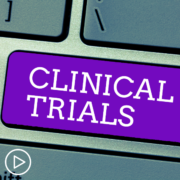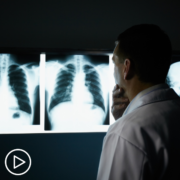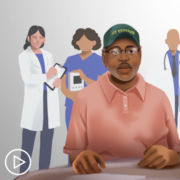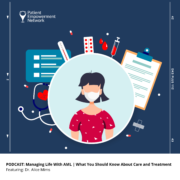Expert Perspective | The Value of Empowering Patients
Expert Perspective | The Value of Empowering Patients from Patient Empowerment Network on Vimeo.
Lung cancer specialist Dr. Tejas Patil, of University of Colorado Cancer Center, explains why it’s important for lung cancer patients to feel empowered and discusses the advice he shares with patients to encourage self-advocacy.
Dr. Tejas Patil is an academic thoracic oncologist at the University of Colorado Cancer Center focused on targeted therapies and novel biomarkers in lung cancer. Learn more about Dr. Patil, here.
See More from Thrive Lung Cancer
Related Resources:

|

|

|
Transcript:
Katherine:
Dr. Patil, how do you empower patients?
Dr. Patil:
Well, I think transparency is key. So, I tell patients what I know. I tell patients what I don’t know. I help patients ask the questions that they may want to ask, but not sure how to.
And I think for patients it’s really important to know that ultimately my role as a provider is to be a coach and a guide. And patients really have autonomy over their bodies and their choices. Sometimes I disagree with what patients choose to do, sometimes I agree. But I will think that as long as patients are aware of the risks and benefits of any decision they’re making and do it with information, that that’s a way of empowering patients.
Katherine:
Why is it so important for patients to be empowered?
Dr. Patil:
I think an empowered patient is actually a patient that can make meaningful decisions, and not make emotional decisions. I think that cancer diagnoses inherently are scary.
They come with a lot of existential concerns and patients oftentimes feel like they’re cornered. And when patients are empowered, they can feel those emotions, but also make decisions that are based more on science and some on the facts that actually affect their care.
Katherine:
Yeah. The more information we have, the more in control we feel.
Dr. Patil:
The more in control you are actually.
Katherine:
Yeah. Yeah. Very true.










